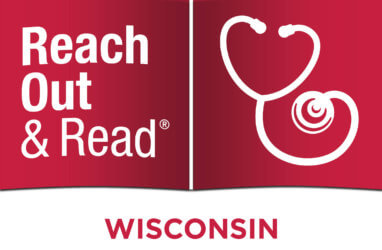I really don’t know what possessed me to become an Appleton police officer after graduating from UW-Madison with a degree in sociology. Little did I know when I retrieved the police officer job posting from the garbage can and applied for the position, my life would forever change. Thus began my 11 year odyssey in law enforcement. My first seven years were spent as a patrol officer. I then decided to specialize in juvenile law and sensitive crimes. The last three years of my career were spent in a local Division 1 high school where even a seasoned officer got an eye-full of serious teen problems. There were the regular thefts, fights and car accidents in the school parking lot; but, who would have guessed the amount of truancy, illegal drugs, teen pregnancy, suicide attempts and more that I frequently encountered.
The power of reading first-hand

By the time I had one little boy and another on the way, I made the decision to leave law enforcement to stay home with my boys. My boys are in college now and I miss having their fat cheeks to kiss.
My favorite thing to do with my boys was to read to them. We all loved it. I would bring armfuls of picture books home from the library. One of my boys would sit for long periods of time focused on our books. The other was busy with toys as he listened, but he did listen. After everything I had seen as a police officer, I knew my boys were lucky. Some of you might be thinking, “Well, that’s what mom’s do. What’s the big deal?”

To be perfectly honest, I thought I was just doing what comes naturally. I was wrong. Adults don’t just naturally “know” their relationships with their children, and shared activities like talking, singing, reading, writing (scribbling qualifies) and playing are so critical to everything in life that comes after. Parents learn how to do this, by observation and learning at some point in their own life. But not all parents have had this behavior modeled for them. It would be great if every child in the world grew up in this type of environment. It would be ideal if parents themselves had these secure, healthy experiences during childhood so they were confident in their abilities to read aloud and felt empowered as their child’s first teacher.
When I look back, everything in my life led me to become a children’s librarian. Many people chuckle, scratch their head and ask, “Why would you do that?” or “That’s kind of a radical career change, isn’t it?” I smile and occasionally tell people that it makes perfect sense to me. I am now in the business of crime prevention. I became a librarian for many reasons, but that is one of the outcomes of my work now.
I have always loved young people and wanted to make a difference in their lives. I want to help them stay on the path to happy, healthy and productive lives. Of course, the factors that lead people down different life paths are varied and complicated. I was never under the illusion that I would save the world after I earned my master’s degree in Library and Information Science, but I hope I can contribute and make a difference.
The evidence is clear. Reading to children helps them develop print awareness, vocabulary and letter identification as well as letter sound recognitions. It also helps children learn to tell stories from beginning to end. These skills are all necessary before reading can begin. Unfortunately, the achievement gap starts early. Love of reading must be learned at an early age and failure to instill a love of reading can impair long-term interest in learning. Over half of all parents don’t read to their children every night. The percentage gets higher for families living in poverty.
Reading difficulty contributes to school failure, truancy, school dropout, juvenile delinquency, substance abuse and teenage pregnancy. Here are some staggering figures:
- Seventy percent of all incarcerated adults cannot read at a 4th grade level
- Eighty-five percent of children in the juvenile court system are functioning at a low literacy level
- The cost of incarceration in the United States is estimated to be between 80 billion and one trillion dollars each year
However, every $1.00 we invest in quality early childhood programs, society gets back $4 – $9. Even if you look at the situation from a purely economic standpoint, investment in quality early learning programs makes sense. Through programs like Reach Out and Read (ROR) we can provide children in our communities with an evidence-based and scalable program that helps start children off on the right track in life.
The wonderful thing about ROR is that it reaches so many families with small children. Who do you think is best equipped to influence parents’ child rearing practices….a librarian, a teacher or a physician? I think we all know the answer to that. When doctors talk, we listen. Here in the Fox Cities, the United Way, public libraries and area health systems are all pulling together to expand ROR throughout the region. Our goal is to have all potential well-child visit sites in the Fox Cities implementing ROR by the end of 2018. It’s spreading fast. I think we’ll reach our goal.
Please give all children a fair chance in life and support quality early childhood education programs like Reach Out and Read.

